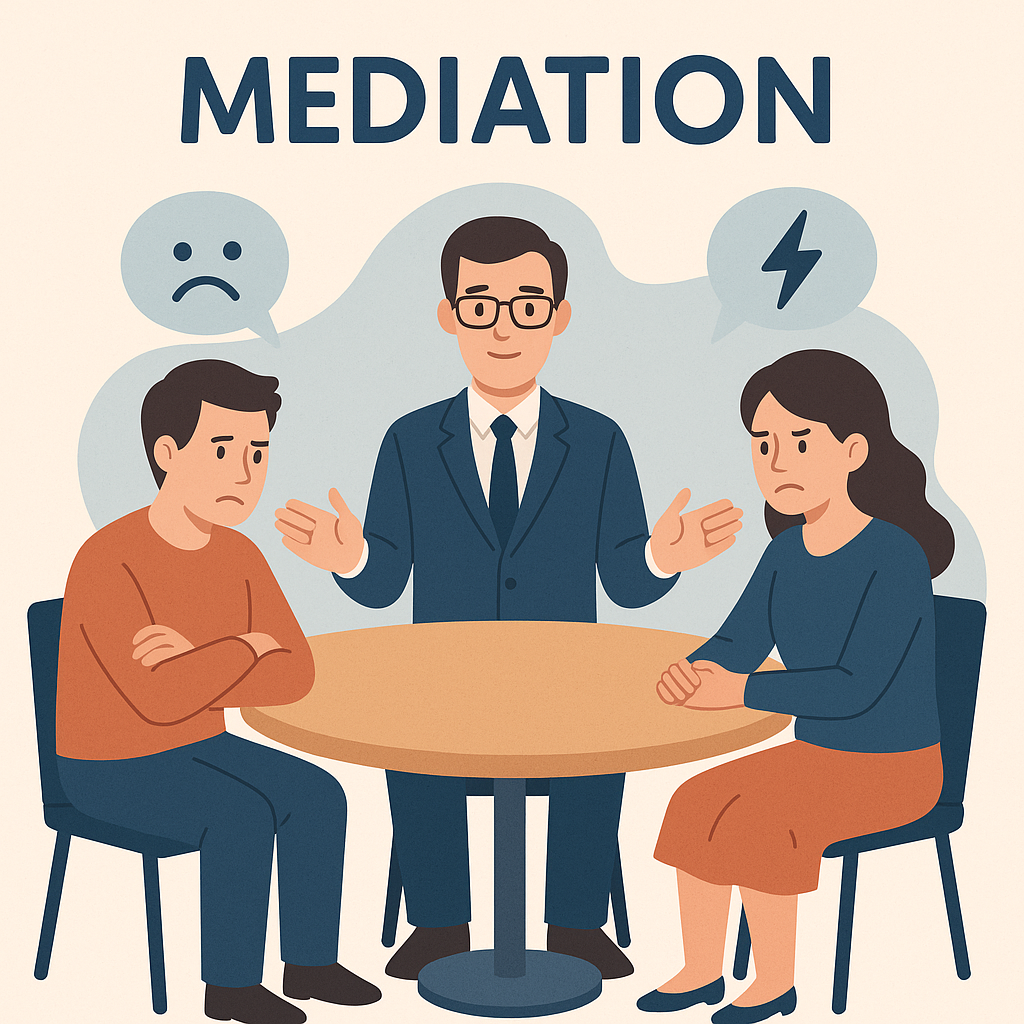
Why Mediation Matters: Lessons from Recent High Court Ruling
A recent decision in the Chancery Division, [Re: Desiman and Brooke] (EWHC [2025] 1305 (Ch)), serves as a sharp reminder of why mediation and Alternative Dispute Resolution (ADR) are not just optional extras — they are essential tools to avoid spiraling costs and preserve value in litigation.
In this case, the judge was clear-eyed and firm in expressing disappointment that the parties had not attempted mediation before appearing before the court. He commented:
“I raised with the parties during the course of the hearing whether or not they had engaged in any ADR or mediation on the applications before me. They confirmed they had not. I consider this is unfortunate as it appeared to me there were a number of matters which would have benefited from further dialogue between the parties, and if such dialogue had occurred this would or should have resulted in resolution of the issue or a narrowing of the issues before the hearing.”
This highlights a key benefit of mediation: it narrows disputes. Even when full settlement cannot be reached, mediation can significantly reduce the number of issues needing judicial determination, saving time, legal costs, and stress for all involved.
The Costs at Stake
Perhaps the most striking part of the judgment is the judge’s concern about the mounting costs:
“I consider the amount of costs which have already been incurred on the applications are likely to have the unfortunate effect of further reducing the return likely to be made to those who rank below Desiman and Brooke, assuming both of them are ultimately paid in full. Indeed, one of the final deductions identified on Mr Fellows’ most recent redemption statement included further fees of some £870,7474.14.”
That’s nearly £870,000 in costs — a figure that underscores how litigation expenses can quickly erode the very value parties are fighting over. By contrast, mediation typically costs only a fraction of that amount.
For example:
- Mediator fees: often £1,000–£5,000 per day (shared between the parties)
- Preparation costs: generally limited to a summary of positions rather than lengthy evidence bundles
- Venue costs: sometimes waived if done online or using law firm offices
Even with more complex commercial mediations, the total cost rarely comes close to the six-figure legal bills associated with prolonged court battles.
Judicial Nudge Toward Mediation
Importantly, the judge signaled that the court’s patience was running thin:
“I would be inclined to order some form of mandatory mediation between the parties to assist them in resolving any remaining disputes, should a voluntary mediation not now take place, as there are still a number of points between them, and to be worked through, on the account.”
This echoes a broader judicial trend, reinforced by decisions like Churchill v Merthyr Tydfil CBC, where the courts increasingly expect parties to engage meaningfully in ADR before using public resources on a hearing.
Takeaways for Litigants
- Mediation saves costs — even if a full agreement isn’t reached, narrowing the issues can cut down the hearing time and associated fees.
- Courts expect it — judges are more willing than ever to impose mandatory ADR or penalize unreasonable refusals to mediate in cost awards.
- Relationships matter — as the judge observed, “greater dialogue is required, even if no love is lost.” Mediation offers a structured space to achieve that, even in hostile disputes.
Final Thought
For lawyers, trustees, and commercial parties alike, the warning from this case is clear: you ignore mediation at your peril. With the court ready to impose mediation if the parties won’t voluntarily engage, the better approach is to seize the initiative early — not just to satisfy the court, but to preserve as much value as possible for the stakeholders who stand behind the litigation
